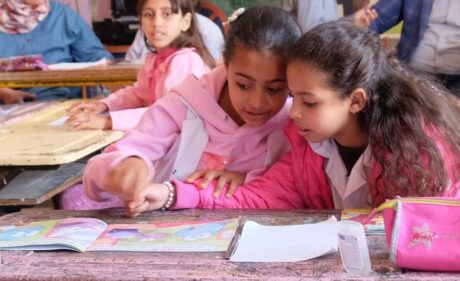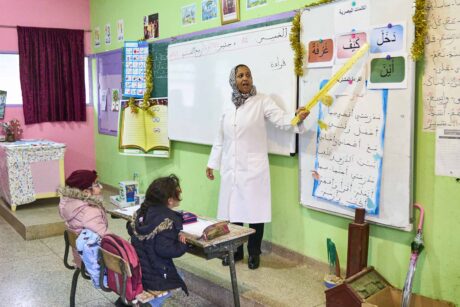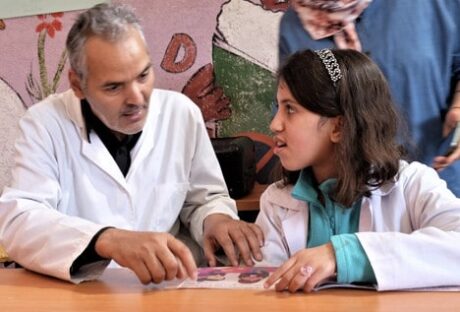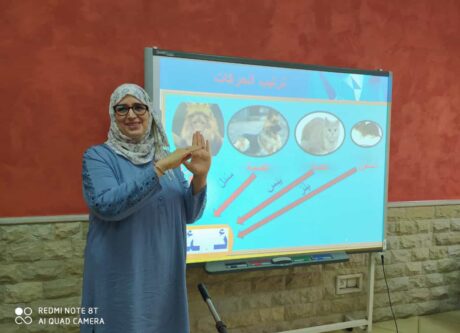In his book “Stratosphere,” noted educator Michael Fullan asserts: “Change really isn’t as hard as we thought if we capture people’s interest and give them enjoyable, worthwhile experiences.” That’s what we sought to do in Morocco, onde o Leitura para o Sucesso da USAID - Programa Nacional de Leitura (NPR) is working with the Ministry of Education to transform the country’s primary school Arabic curriculum.
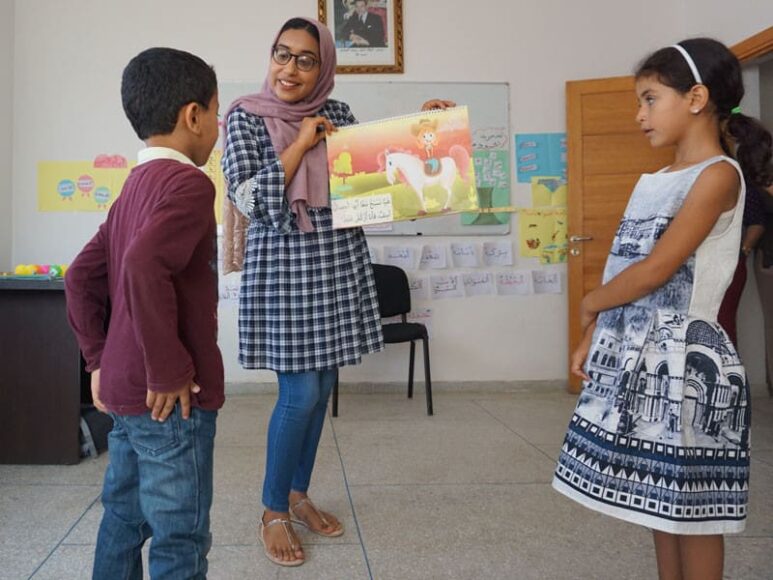
Em agosto. 7, the Ministry officially released of the first complete draft of its primary education program curriculum for grades 1-6, including the Arabic language curriculum. This new curriculum is the result of six years of relentless preparation, desenvolvimento, implementation and revision that had widespread participation of educators, including ministry technical experts in language and pedagogy, academic inspectors, teacher educators and teachers.
After decades of working to expand access to schooling, educators were calling for a transformational reform of curriculum to increase the quality of education.
USAID/Morocco supported three important situation analysis studies on reading instruction that explored classroom context, teacher attitudes and skills, teacher training and supervision systems, and the structure and content of curriculum and teaching learning materials. Engaging teachers, supervisors and decision-makers in data collection and analysis, the studies identified the factors that favored or harmed acquisition of literacy in the early grades.
The conclusion was clear: The literacy curriculum in primary schools was failing both student and teachers. It needed to change to reflect best practices in literacy teaching and learning.
Despite many different perspectives about how to bring about educational change in Morocco, there has been a growing consensus among the policymakers and practitioners on the importance of the Arabic language curriculum — the language of instruction in primary, middle and secondary school — as a driving force for improving educational quality. What remained was a debate about the curriculum reform process: how to make “enjoyable and worthwhile” experience for the different players in the basic education field, so that they would readily support and use it.
Em 2016, with USAID support, the Ministry launched a phased and iterative cycle of Arabic Language curriculum reform, simultaneously developing, testing and refining the materials. NPR guided the reforms, crafting a participatory process with influential stakeholders from all parts in the Ministry of Education who held the key to its success on the national stage, in the regions, and in the schools.
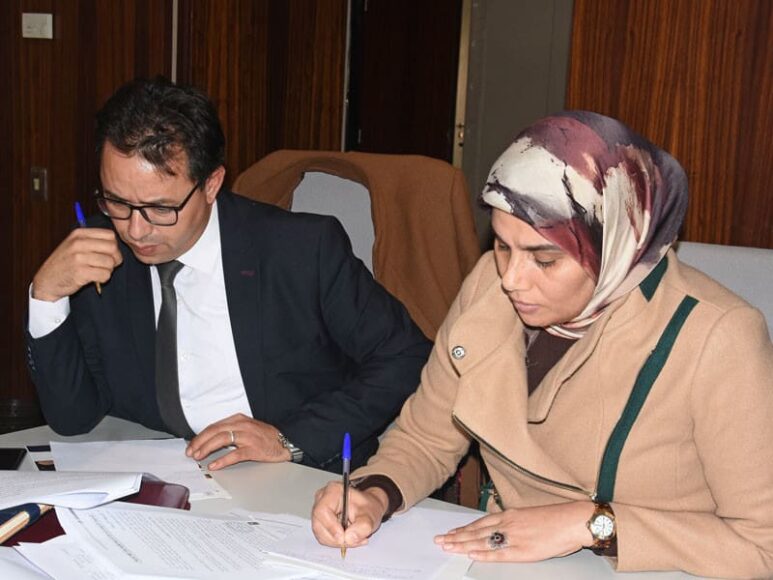
The process involved three groups of key stakeholders. At the central level, the NPR technical team and a small group of Ministry of Education technical experts assigned by the Director of Curriculum developed the curriculum framework, including the scope and sequence. A nível regional, a core group of 19 regional inspectors and teacher trainers from four target regions served as a liaison between the project and the eight districts where the NPR’s 90 experimental schools are located.
This group has been of special importance to the curriculum development process from inception to scale-up. They trained teachers on the new curriculum and its delivery (ou seja, methods and materials) in the experimental schools, coached teachers to reinforce its application, and monitored its adoption and identified challenges for refinement in content, materials and pedagogy (por exemplo, oral reading fluency measurement and interactive writing). As the Ministry of Education began the rollout of new curriculum nationwide in 2018, they served as co-trainers to the third group of stakeholders: 763 inspectors across all 12 of Morocco’s regional academies.
Building consensus on the curriculum at all levels and keeping these stakeholder groups engaged throughout the process allowed the NPR team to effectively scale up the curriculum and move from experimentation and testing in select regions to validation nationwide.
With the outbreak of the COVID-19 crisis, the curriculum reform process faced unexpected challenges. No entanto, the commitment of the group never faded, even as schools closed and all meetings moved online. After introducing the new curriculum in grades 1-4 during the 2018-2019 e 2019-2020 school years, the group is now preparing to enter phase three with grades 5-6 this fall. At a July 2020 virtual meeting, attended by the curriculum director and many directors and representatives from the regions, the group discussed the updated grade 5-6 curriculum document, the new textbooks and teacher guides to be released at the beginning of the school year, and the scale up training in their respective regions. Their engagement through the process helped ensure that it could continue smoothly through the uncertainties of a global pandemic.
In a letter addressed to inspectors, treinadores, professors and teachers introducing the final curriculum document, Senhor. Fouad Chafiqi, the Curriculum Department Director, stated:
“(This curriculum) is the conclusion of more than five years of continuous work by researchers, inspetores, formadores de professores, and teachers who worked under the supervision of the Office of Curricula … This work adopted the early grade reading approach and was accompanied, in parallel, by rewriting all textbooks for the elementary school based on quality specifications and rigorous evaluations, training inspectors in four national training workshops, dozens of regional meetings, and training of all teachers. This process will be continued over the next year until we have a comprehensive curriculum document by the school entry in 2021.”
Through this collaborative, enjoyable curriculum reform process, o Ministério da Educação, USAID Morocco and NPR technical team were able to achieve a significant change that will improve the learning of millions of children across the country,
Fathi El-Ashry, Ph.D., is Senior Technical Advisor of Literacy Instruction at Creative Associates International and Technical Lead of the National Program for Reading project in Morocco.
